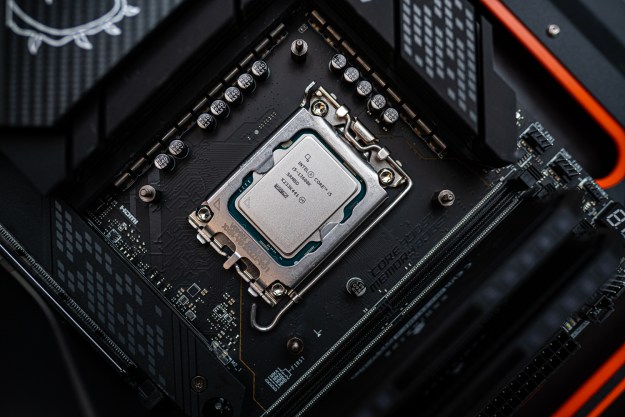
Intel’s flagship Core i9-11900K processor was spotted with a clock speed in excess of 7GHz, thanks to the use of aftermarket cooling solutions powered by liquid nitrogen. Intel’s 11th Gen desktop processor, otherwise known as Rocket Lake-S, was already spotted on an Asus ROG Maximus XIII Apex motherboard on benchmarking site CPU-Z Validation running at 7,048 MHz with 1.873 volts of power. The benchmark was run by overclocker Rog-Fisher, who now has the top three speed records for the Core i9-11900K. The chip’s normal clock frequency is expected to be set to 3.5GHz out of the box.
YouTube channel PC Wale was also able to overclock the processor. Though PC Wale wasn’t able to reach the 7GHz clock speed obtained by Rog-Fisher, it did get Intel’s Core i9-11900K running at 6.5GHz. The unreleased CPU was running at a slightly lower 1.678 volts of power.
According to Videocardz, the channel was able to achieve the speed by running a custom XOC BIOS from overclocker SafeDisk — who also works for Asus — on the Asus ROG Maximus XIII Hero motherboard. The custom BIOS unlocks the voltage to 2 volts, which allowed the faster clock frequency.
Though we now know that Intel’s Core i9-11900K Rocket Lake chipset can run at double the shipping clock speeds, it’s unclear what kind of performance uplift the faster frequency will deliver. Results from top benchmarking utilities aren’t posted at this time, so we still don’t have a comparison of performance between normal frequencies and the faster overclocked speeds.
Those interested in Intel’s Rocket Lake processors won’t have too much longer to wait. Rocket Lake is expected to become available tomorrow, March 30, and we’ll likely see more benchmarks posted at that time.
Intel announced at CES that it will also launch its 12th-generation processors later this year. The company is hard at work readying its Alder Lake platform, which will introduce a heterogeneous core architecture to desktops for the first time. The 12th Gen Alder Lake processors are expected to launch in late 2021 and, if Intel’s previous launch cadence is followed, we can expect mobile chips to debut before desktop parts arrive.
Editors' Recommendations
- Intel’s next-gen Arrow Lake may introduce some major changes to desktop chips
- The Intel we know is dead, but its new Lunar Lake chips are very much alive
- Intel may have accidentally leaked the release date for Windows 12
- Intel’s Core Ultra CPUs are more Apple, less AMD
- Intel is using AI to make your laptop battery last longer


